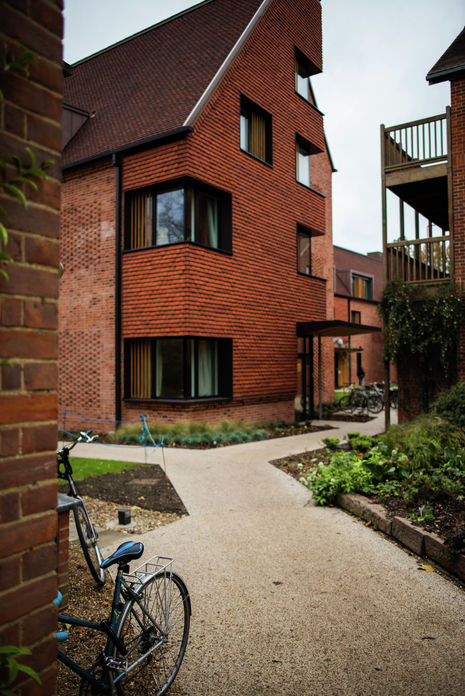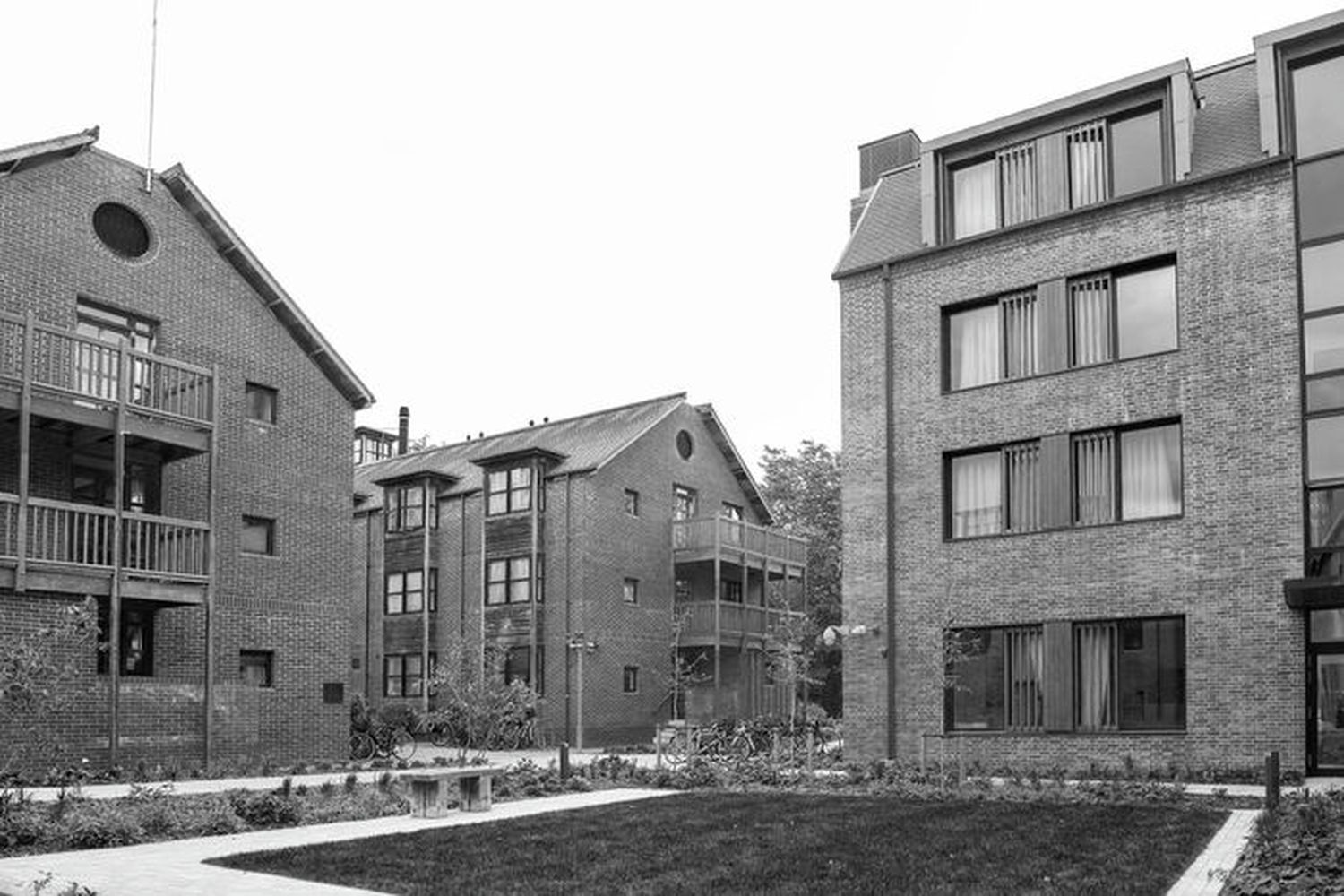The tables were being set inside Lucy Cavendish’s wood-panelled hall for the usual Friday formal. The lights were dimmed and the candles were lit. But for the first time in this mature woman’s college history, the gowned students queuing outside were not women. They weren’t even invited: this was an exclusively male event. (Or that was the plan at least).
Since Lucy Cav first opened its red brick doors to students in the sixties, the college had only ever admitted women over the age of 21. It wasn’t uncommon as a student to share a gyp with a pensioner or have supervisions with a mum of three.
Ell, the incumbent JCR secretary, lived alongside women older than her parents in her first year. “At first it was a bit strange,” says Ell. “But we didn’t really have the things in college that you would have at a ‘normal’ college”.
This is not your conventional Cambridge college. Luke, the JCR President, even differentiates Lucy Cav from other women’s colleges. “Lucy Cavendish is a different case to Newnham and Murray Edwards,” he says incisively. “Because of the founding vision of the college. Making it mixed [was] the next step in this vision”.
Lucy Cav is the most diverse college in Cambridge, with 90% of applicants from state schools and 60% filling wider participation criteria. Access is at the heart of the college’s ethos.
In 2019, Lucy Cav took its next step for accessibility, and, following a consultation with over 2600 alumni, fellows and donors, the college appointed its first male fellows. Then, in 2021, Lucy Cav historically welcomed its first mixed cohort.
“You’d be silly to expect the environment not to have changed,” says Ell. “I had never seen a man in Lucy Cav apart from the Porters or maintenance men.”
But the consensus amongst the students is that the transition was surprisingly smooth. “’The boys integrated into the college environment straight away,” says Ell right off the bat. “’Two weeks in [they] almost forgot there had been a change”.
A second-year Lucy Cav undergrad agrees. For him, the most difficult part of the transition was in fact the generational divide between the younger, more outgoing undergrads and the older, more settled mature students.
“We’re trying to make life more welcoming to undergraduates who are not mature by having more bops, more fun stuff,” he says bluntly.
Students at Lucy Cav were infamously deaned for their end-of-term bop in Lent last year, even though organisers had completed a “comprehensive” risk assessment.
Ell notes that, in her first year, Lucy Cav ’didn’t really have the things that you would have in a ‘normal college’’. ‘For example, we didn’t have access to sports courts or a JCR until this year.’
Speaking to the Porter’s, however, Ell was pleased to find out that the ‘college did have successful bops where people lined up around college to try and get in – it wasn’t just people sat around knitting’. After COVID hindered this, it seems that students are keen to get the bop ball rolling once more.
For Ell, it is also important that the college’s women-only history is not simply lost in the past. They believe Lucy Cav’s status as a safe space for female students can be maintained by a mixed student body, and that roles such as Men’s Officer are crucial for ensuring this.
Ell feels that ‘the role of Men’s Officer should be one that makes sure men are integrating positively into the community, and the college’s strong values about female empowerment are upheld’. After pausing, they admit, however, that ‘there are varying views in college about what the role should and can be’.
As a whole, it is acknowledged that welcoming male undergraduates into the college aligns with its ethos. With or without male students, Ell feels grateful for the inclusivity Lucy Cav’s practices. ‘With the background I’m from and being scared to come to Cambridge, or any university, to be put into a really safe all-women space was a really nice thing to have, but (not to be like Hannah Montana), I’ve really got the best of both worlds’.
This, of course, begs the question: with Lucy Cav turning mixed, is there still a place for single-sex colleges at Cambridge?
Dr Piers Bursill-Hall, who was one of the first four men to study at Girton in the seventies, states ‘men don’t operate well in an all-male environment’ but he ‘wouldn’t be surprised if some all-women colleges survive long term’. He believes that ‘the thing that will always make a difference is admission’. ‘If women keep applying, they will survive’.

The transition Lucy Cav is undergoing is not a novel one. Bursill-Hall describes this experience vividly. “We were being admitted into a very feminist community – men were coming into an environment where women dominated – it was very matriarchal in the nicest sense of the world,” he recalls.
Bursill-Hall in fact fondly recalls being so well-fed at college that it must have had ’financial implications for the college. He says ‘men will eat anything, just because we’re men’, something he didn’t think Girton were quite ready for.
Does he have any advice for the first-generation Lucy Cav men? “Lucky guys,” he quips. “They will probably get better food – they will find concern and care in their college. If they hit rock bottom there will be people there who will help”. He also claims that ‘women’s colleges just had a habit of being more caring towards their students’.
Others are not so optimistic about the future of single-sex colleges. Germaine Greer, who was a former lecturer at Newnham College, thinks ‘women get on better in their own environment’, but told The Daily Telegraph the remaining women-only Colleges are on ‘borrowed time’.
Whilst Greer may focus on the aspect of sex, in many ways Lucy Cav’s decision is not about gender. “It was never about men,” says Joseph, the JCR Vice-President. “It was just about providing educational opportunities to people who were historically denied access for reasons unrelated to being a man. And it just so happens that some of those people are men and that is why the admissions policy was changed”.
This article was updated (13/11).


